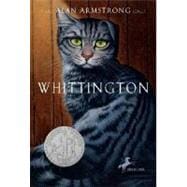
What is included with this book?
| Map of Dick Whittington's Journeys | iv | ||||
|
1 | ||||
|
7 | ||||
|
10 | ||||
|
15 | ||||
|
17 | ||||
|
20 | ||||
|
26 | ||||
|
31 | ||||
|
34 | ||||
| 10. The Man Whittington Named Himself After | 38 | ||||
| 11. Dick's Dream | 43 | ||||
| 12. Dick Goes to London | 49 | ||||
| 13. Dick Arrives in London | 56 | ||||
| 14. Dick Is Given a Home | 61 | ||||
| 15. The Boy Goes to Work for Fitzwarren | 68 | ||||
| 16. Ben's First Reading Lesson in the Barn | 71 | ||||
| 17. Blackie Arrives | 74 | ||||
| 18. Dick Meets His Cat | 76 | ||||
| 19. Out with the Owls | 84 | ||||
| 20. Spooker Is Sick | 88 | ||||
| 21. Ben's Reading | 92 | ||||
| 22. To Africa on the Unicorn | 95 | ||||
| 23. The Registered Letter | 103 | ||||
| 24. Ben's School Principal Visits the Texaco | 106 | ||||
| 25. Reading Recovery | 109 | ||||
| 26. Dick Sees a Beautiful Girl in Black | 111 | ||||
| 27. Two Newcomers Join the Barn | 119 | ||||
| 28. Dick's Cat Returns | 122 | ||||
| 29. A Hawk Attacks the Lady | 127 | ||||
| 30. Ben Goes to Reading Recovery and Meets Miss O'Brian | 130 | ||||
| 31. The Cat's Operation | 133 | ||||
| 32. Dick Meets Will Price Again | 137 | ||||
| 33. Willy the Goat's Surprise | 141 | ||||
| 34. Dick Sees the Girl in Black Again | 144 | ||||
| 35. Marker Raids the Barn | 150 | ||||
| 36. Dick Decides on the Dangerous Voyage | 152 | ||||
| 37. Ben's Decision | 156 | ||||
| 38. A Token for Mary | 158 | ||||
| 39. Gent Arrives | 163 | ||||
| 40. A Rescue | 168 | ||||
| 41. Dick's Cat Is Lost at Sea | 170 | ||||
| 42. Mary | 177 | ||||
| 43. Ben's Triumph | 180 | ||||
| 44. Life in the Barn Continues | 182 | ||||
| 45. The Last Warm Afternoon of Autumn | 184 | ||||
| Endnote | 187 |
The New copy of this book will include any supplemental materials advertised. Please check the title of the book to determine if it should include any access cards, study guides, lab manuals, CDs, etc.
The Used, Rental and eBook copies of this book are not guaranteed to include any supplemental materials. Typically, only the book itself is included. This is true even if the title states it includes any access cards, study guides, lab manuals, CDs, etc.
Excerpted from Whittington by Alan W. Armstrong
All rights reserved by the original copyright owners. Excerpts are provided for display purposes only and may not be reproduced, reprinted or distributed without the written permission of the publisher.